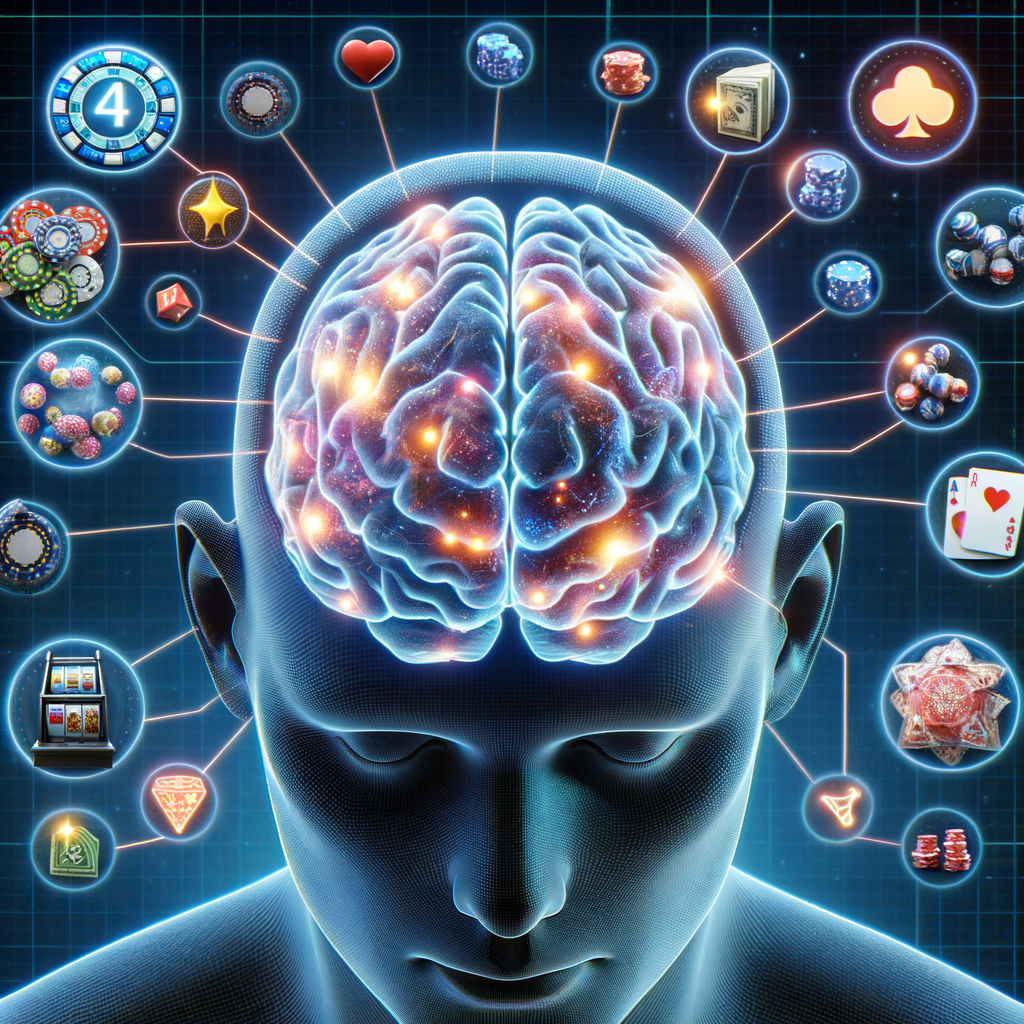Online gambling has surged in popularity over the past few years, attracting millions of players to virtual casinos and betting sites. While the thrill of gambling can be exhilarating, spending extended periods engaged in these activities can significantly affect your brain’s functioning and overall well-being. This article delves into the cognitive and neurological impacts of prolonged online gambling sessions, particularly after four hours of play.
The Cognitive Impact of Extended Online Gambling Sessions
Extended periods of online gambling can lead to changes in cognitive functions, particularly attention, memory, and decision-making. After four hours of continuous play, the brain’s ability to concentrate can diminish significantly. Players often experience cognitive overload, leading to lapses in focus and poorer decision-making skills. The brain, in its effort to keep up with the fast-paced nature of online gambling, may struggle to process information, leading to impulsive bets and riskier behavior.
Moreover, the mental fatigue associated with long gambling sessions can impair memory retention. This is particularly concerning in games requiring strategy and skill, such as poker or blackjack, where players must remember previous moves and outcomes. When cognitive resources are depleted after hours of gambling, players may find it difficult to recall vital information that could influence their gameplay. This decline in memory can reinforce poor decision-making, creating a vicious cycle that can further exacerbate gambling losses.
Additionally, the impact of prolonged online gambling can extend beyond cognitive fatigue. Players may experience increased levels of stress and anxiety, particularly if they are facing financial losses. The brain’s emotional centers become activated, heightening feelings of frustration or despair, which can lead to an unhealthy relationship with gambling. This emotional turmoil can cloud judgment and further impair cognitive functions, making it even more challenging to make sound decisions during play.
| Cognitive Function | Effect After 4 Hours of Gambling |
|---|---|
| Attention | Decreased focus and concentration |
| Memory | Impaired retention and recall |
| Decision-Making | Increased impulsivity and risk-taking |
Understanding the Neurological Effects After Four Hours of Play
Engaging in online gambling for an extended period can trigger specific neurological responses that affect both behavior and brain chemistry. The brain releases chemicals like dopamine during gambling, which is associated with pleasure and reward. However, after four hours of intense play, the brain may experience a dopamine spike followed by a subsequent crash, leading to feelings of discontent and restlessness. This cycle can create a need for gamblers to continue playing in search of those rewarding feelings, potentially leading to addiction.
Moreover, the brain’s prefrontal cortex, responsible for rational thinking and impulse control, can become less effective during prolonged gambling sessions. Research indicates that extended exposure to gambling can diminish the prefrontal cortex’s function, making it harder for players to weigh the risks and benefits of their actions. This neurological change can result in a higher propensity for gambling-related errors and an inability to halt play when necessary, perpetuating a cycle of compulsive gambling behavior.
Another critical neurological aspect is the impact on the amygdala, the brain region involved in emotional responses. After four hours of online gambling, the amygdala may become overactive, heightening emotional reactions to wins and losses. This heightened emotional state can lead to anxiety, mood swings, and increased stress levels, which can further undermine a gambler’s ability to make rational decisions. The interplay between emotional responses and cognitive function underscores the importance of understanding the risks associated with long gambling sessions.
Q&A Section
Q: How does prolonged online gambling affect mental health?
A: Extended online gambling can lead to increased stress, anxiety, and emotional instability, impacting overall mental health. Players may develop unhealthy coping mechanisms in response to losses.
Q: Can I mitigate the cognitive effects of long gaming sessions?
A: Yes, taking regular breaks, setting time limits, and practicing mindfulness can help reduce cognitive fatigue and improve decision-making while gambling.
Q: Is it common to experience impulsivity after long gambling sessions?
A: Yes, cognitive overload and diminished prefrontal cortex function can lead to increased impulsivity and risk-taking behavior during prolonged gambling.
Q: What are the signs of addiction to online gambling?
A: Key signs include an inability to stop playing despite negative consequences, increasing amounts of time spent gambling, and using gambling as a means to escape stress or anxiety.
Q: How does the brain’s reward system play a role in gambling behavior?
A: The brain releases dopamine during gambling, creating feelings of pleasure and reward. Over time, players may chase these feelings, leading to compulsive gambling behavior.
In wrapping up, while online gambling can provide entertainment and excitement, understanding the cognitive and neurological consequences of extended play is crucial. Four hours of continuous gambling can lead to diminished cognitive function, emotional instability, and a heightened risk of addiction, emphasizing the importance of moderation and self-awareness in gambling activities.




Comments